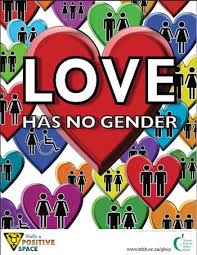
Article reference here.
We are past worrying about human rights: freedom of expression, conscience, religion, movement, association, etc. It is now clear that those taking control of things see all these rights as privileges. The question will remain: “Who wins in a society of privilege?” I would answer: “The approved self wins.” Not just any self, but the approved self (approved by the controllers) wins over all others.
The rise of the narcissistic-subjective religion of self goes back to at least the 1960s, though the philosophy at its foundation extends to the Enlightenment (17th and 18th centuries). The avalanche that the Enlightenment unleashed has changed the societal landscape and molded into what we are now experiencing. But that “religion of the self” was being clearly manifested during the 1960s and since, to where we are today. As Christians, we have been disobediently in retreat since the Enlightenment, to a place in the current era that our faith is to be private. “Keep politics out of religion and religion out of politics!” has been the commands of both humanists who despise the idea of God and church elders and leaders telling their pastors to sound the retreat to the prayer closets. Unbelievers and Christians largely agreed: faith is a private affair. This is a decades-old retreat. In the past few years we have been forced to eat this rotten fruit. The Civil Government commands the churches.
Did we really think this was only about public health? This CBC article shows plainly the popular mood against God’s Law, and can hardly contain the shock and rage felt when a small pocket of Christians choose to take it as fact and universally applicable. How dare they!
When an army is in full retreat, it surrenders a lot of ground, ground that must be retaken. This may take as many years as were given up, and the response from the broader culture will not be affirming. The CBC article is about as biased as it can be, ignoring the history of Christianity wherein the self is to be denied; the self is not the master. When legacy media writes about Christianity and its role in society, the ground lost in our retreat is made evident.
The child in this story is a little girl who needs parents who will protect her. Instead, she will likely be chemically altered, receive an unnecessary double mastectomy, and a hysterectomy. When, in her 20s or 30s she has regret, it will all be irreversible and she will be medically and emotionally on her own. But the real villain in this story is a church camp committed to a consistent expression of God’s Word. Would they be an expression of Christian love to deny an anorexic teen food at camp because she identifies as obese? This camp will likely, if charged under a human rights court, appeal to the Charter of Rights and Freedoms. As I’ve stated above, these are non-existent in a regime of privilege. It is likely to fail because a court can easily determine that Christian camping is just another form of public accommodation (see the article). Camping is camping and there is no significant religious aspect to it.
We are being reduced to a Christianity that is Sunday only, home only, your head only. But these places of refuge will not be permissible for much longer. The idolatrous State will allow no thought, prayer, place, or privacy to exist outside of its control. Those who retreat to seek safety have guaranteed that their descendants will not be safe. Still, I believe the words of Daniel’s friends:
“But if not” (Daniel 3:17-18). “17 If this be so, our God whom we serve is able to deliver us from the burning fiery furnace, and he will deliver us out of your hand, O king. 18 But if not, be it known to you, O king, that we will not serve your gods or worship the golden image that you have set up.”
Daniel’s friends were in anything but retreat! They could only say this because they (literally) took a dangerous stand. To retreat is to deny the promises of God and to test Him.
Before we can retake what was lost, we must stop the retreat! Can we do this? Will we?


 Scripture calls some things abominations. How can we call these things good?
Scripture calls some things abominations. How can we call these things good?